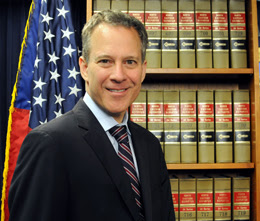
The deal comes as new data show that the price cut first negotiated by the A.G.’s office last year has made it possible for more than 200 agencies across the state to obtain a total of 278,000 discounted syringes of naloxone, saving $1.6 million in costs since February 2015.
The agreement stipulates that Amphastar will cover a $6 rebate per dose, which will also automatically increase, dollar-for-dollar, to match future growth in the wholesale price. As part of the agreement, this rebate is available to all public entities, including but not limited to the State Department of Health, the City of New York, the governments of individual New York Counties, and the drug treatment centers and harm reduction programs they fund. The data released today on the cost savings and number of discounted syringes dispensed as part of this program refer to the period from February 2015 to July 2016 (see table below). Overall, the deal reduces the price of naloxone by nearly 20 percent.
“We need every tool at our disposal to respond to the opioid addiction crisis, and that includes making sure that live-saving medication like naloxone is available to first responders who are on the front lines to treat victims of overdose,” said Attorney General Schneiderman. “The price cut negotiated by my office has made this antidote more affordable for hundreds of communities across the state, and we will continue to look for ways to empower communities in New York to respond to this crisis.”
In the past year, a number of states across the country, including Ohio, Delaware, and Rhode Island, have reached deals with Amphastar patterned off the price cut that A.G. Schneiderman initially negotiated in 2015.
“Naloxone has saved thousands of lives and needs to be in the hands of as many New Yorkers as possible,” said Jeremy Saunders, co-executive director of VOCAL-NY. “We appreciate Attorney General Schneiderman’s continuing efforts to negotiate reduced prices, especially as overdose deaths are on the rise. Ultimately, price should never be a barrier to saving a life – we look forward to working together to ensure that Naloxone is always affordable for those who need it most.”
The Attorney General’s office has adopted a comprehensive approach to addressing the opioid addiction crisis in New York State.
Last month, A.G. Schneiderman announced a national settlement with the global health insurer Cigna to end its policy of requiring prior authorization for medication-assisted treatment (“MAT”) for opioid use disorder, removing a significant barrier for those suffering from opioid addiction to access treatment.
In September, A.G. Schneiderman joined law enforcement authorities from across the country to announce the indictment of 25 people for their role in an alleged national heroin smuggling ring and the seizure of more than 33 kilos of heroin – one of the largest seizures ever in New York. In October, A.G. Schneiderman and the New York State Police announced the seizure of more than 20 kilos of heroin and cocaine and the indictment of 14 people as part of an alleged narcotics trafficking kingpin.
In June of 2011, Attorney General Schneiderman introduced state legislation for I-STOP, an online Prescription Monitoring Program or a “PMP,” that enables doctors and pharmacists to report and track controlled narcotics in real time. I-STOP became effective in August of 2013, making New York State one of the first states to establish such a PMP, and has reduced “doctor-shopping” by 75 percent.
The Attorney General’s office has also aggressively enforced laws that require parity in health plan coverage of mental health and addiction treatment, reaching agreements with six companies, including Cigna, MVP Healthcare, EmblemHealth, Excellus, Beacon Health Options, and HealthNow.
The Attorney General’s office has prosecuted many health care providers who illegally prescribed and diverted opioids. A.G. Schneiderman has also reached agreements with Purdue Pharma and Endo Pharmaceuticals Inc., to ensure that these opioid makers engage in responsible and legal marketing.

